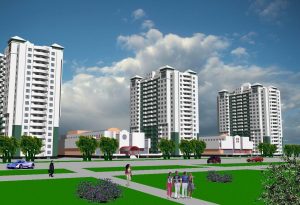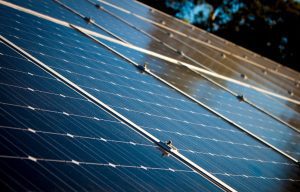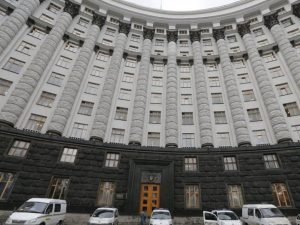
Housing commissioning in Ukraine in 2019 increased 26.9% compared to 2018, to 11.029 million square meters. According to the service, the share of commissioning of houses built without permits for construction work and put in operation under temporary commissioning rules was 23.7% (2.622 million square meters).
According to the report, 6.807 million square meters of housing was commissioned in urban areas in 2019, and 4.223 million in rural areas. Some 53% of total volume of housing was commissioned in single-family houses, and 46.9% in houses with two and more apartments.
Over the period, 125,986 apartments were commissioned, including 87,823in urban areas and 38,163 in rural areas. Average area of apartments was 87.5 square meters.
Some 55.4% of housing was commissioned in Kyiv city and region, as well as Lviv, Odesa and Ivano-Frankivsk regions in 2019, in particular in Kyiv city – 1.114 million square meters.

About 22,000 Ukrainian households installed photovoltaic (PV) panels in 2019 and use clean electricity, the press service of the State Agency of Energy Efficiency and Energy Saving has reported.
So, as of January 1, 2020, about 22,000 households in the country use clean electricity, having invested about EUR 450 million in PV panels. The total capacity of the installed panels exceeds 553 MW.
“Thanks to solar panels, families save on electricity bills, independently provide for their energy needs, become energy-efficient, have more motivation to use energy-efficient household appliances,” the authority said.
The leaders among the regions in the use of clean electricity are: Dnipropetrovsk – 2,700 MW, Ternopil – more than 2,000 MW, and Kyiv – almost 1,800 MW.
As reported, as of October 1, 2019, about 15,000 households had established PV panels in Ukraine, having invested EUR 300 million in them

Metinvest B.V. (the Netherlands), the parent company of the Metinvest international vertically integrated mining and metal group, cut net profit by 71.5% in 2019 compared with 2018, to $341 million from $1.188 billion with the decline in margin by 7 percentage point (pp), from 10% to 3%.
According to the audited consolidated financial results for 2019 released by the company on Wednesday, its revenue for decreased 10%б to $10.757 billion, earnings before interest, taxes, depreciation and amortization (EBITDA) fell by 52%, to $1.213 billion with a drop in margin of 10 pp, to 11% from 21%.
The total debt of the company in 2019 increased 11% compared to 2018, to 3.032 billion from $2.743 billion. At the same time, cash and cash equivalents decreased 2%, to $274 million from $280 million.
Net debt grew by 12%, to $2.758 billion.
Capital investment increased 17%, to $1.055 billion from $898 million.
The main shareholders of Metinvest are SCM Group (71.24%) and Smart Holding (23.76%), jointly managing the company.
Metinvest Holding LLC is the managing company of Metinvest Group.

The commission of the State Aviation Service of Ukraine has decided to recommend the head of the authority to authorize Windrose to operate the Dnipro-Berlin (Germany) line for regular flights for an indefinite period of time (three times a week), according to a posting on the website of the regulator.
In addition, Jonica Airlines was allowed to fly from Odesa to Prague (Czech Republic) from March 29, 2020 for an unlimited period four times a week, Eleron Airlines from Lviv to Tel Aviv (Israel) from April 1 three times a week, SkyUp from Odesa to Istanbul (Turkey) for an unlimited period of time four times a week, and Ukraine International Airlines (UIA) from Zaporizhia to Larnaca (Cyprus) for an unlimited period of time twice a week.
In addition, it was decided to increase the number of Windrose’s flights on the following lines: Kyiv-Dnipro-Kyiv (from 21 to 26 flights per week), Kyiv-Odesa-Kyiv (from three to 21 flights per week), Kyiv-Mykolaiv-Kyiv (from five to seven flights per week). The number of Azur Air Ukraine flights on the routes Kyiv-Dalaman (Turkey)-Kyiv (from two to five flights a week) and Kyiv-La Romana (Dominican Republic)-Kyiv (from two to five flights a week) has also been increased.
At the same time, the State Aviation Service left the Windrose’s application without consideration regarding obtaining rights to operate the following lines: Kyiv-Zaporizhia-Kyiv, Kyiv-Odesa-Kyiv, Kyiv-Lviv-Kyiv, Kyiv-Kherson-Kyiv, Kyiv-Kharkiv-Kyiv (all – three flights a week), as well as Kyiv-Dnipro-Kyiv (five flights a week).
In addition, the regulator decided not to allow SkyUp to obtain rights to operate the Kyiv-Venice (Italy)-Kyiv (two flights a week), Lviv-Venice-Lviv (two flights a week), Kyiv-Istanbul-Kyiv (three flights a week), Kyiv-Prague-Kyiv (seven flights a week) and Azur Air Ukraine to operate the Kyiv-Istanbul-Kyiv (seven flights a week) and Kyiv-Bodrum (Turkey)-Kyiv lines.

The Verkhovna Rada of Ukraine has approved the candidates for ministers of the new Ukrainian government proposed by newly appointed Prime Minister of Ukraine Denys Shmyhal. Some 277 MPs voted in favor of the new composition of the Cabinet of Ministers.
The new composition of the Cabinet of Ministers of Ukraine is as follows:
Deputy Prime Minister and Digital Transformation Minister of Ukraine – Mykhailo Fedorov;
Deputy Prime Minister for European and Euro-Atlantic Integration of Ukraine – Vadym Prystaiko;
Deputy Prime Minister and Minister for Reintegration of Temporarily Occupied Territories of Ukraine – Oleksiy Reznikov;
Social Policy Minister of Ukraine – Maryna Lazebna;
Interior Minister of Ukraine – Arsen Avakov;
Youth and Sports Minister of Ukraine – Vadym Gutzeit;
Infrastructure Minister of Ukraine – Vladyslav Krykliy;
Minister for Veterans’ Affairs of Ukraine Serhiy Bessarab;
Justice Minister of Ukraine – Denys Maliuska;
Minister of the Cabinet of Ministers of Ukraine – Oleh Nemchinov;
Minister for Communities and Territories Development of Ukraine – Oleksiy Chernyshov;
Health Minister of Ukraine – Illia Yemets;
Finance Minister of Ukraine – Ihor Umansky.
In the previous government of Oleksiy Honcharuk, which resigned on Wednesday, Fedorov was Deputy Prime Minister and Minister for Digital Transformation, Avakov was Minister of Internal Affairs, Krykliy was Minister of Infrastructure, and Maliuska was Minister of Justice.
Culture Minister Volodymyr Borodiansky will be replaced, for now, by one of his deputies as Acting Culture Minister, a Servant of the People parliamentarian, Yevhenia Kravchuk, said on Facebook.
“The office of Minister of Education is still vacant, there will be Acting Minister of Education,” she said.
The previous Minister of the Cabinet of Ministers, Dmytro Dubilet, will “remain in the team,” Kravchuk said.

The volume of the Ukrainian tile market in 2019 totaled 44 million square meters, the founder of the Golden Tile group (Kyiv), head of the supervisory board of PrJSC Kharkiv Tile Plant Valentyn Shevetovsky has said. “If the world has doubled the consumption of ceramic tiles over 10 years, then Ukraine, unfortunately, showed a downward trend. In 2008, Ukraine consumed 60 million square meters of ceramic tile, in 2019 – 44 million square meters. There is the objective reason: Crimea and Donbas. But tile consumption per person remains 1 square meter, although in the world it is 2 square meters on average,” he said during a video report on the company’s results and plans broadcasted on Facebook on Tuesday.
So, in the Ukrainian market there are six large enterprises producing ceramic tiles, including the new plant of the Epicenter K group of companies.
According to experts, in 2019, the Golden Tile ceramic group produced 15.3 million square meters of ceramic tiles, while occupying about 30% of the Ukrainian market. Atem Group produced 15.3 million square meters, and its market share was 29%.
“Cersanit produced 10.2 million square meters and occupies 20% of the market, Interkerama – 6 million square meters with a 13% share, Zeus – 2.4 million square meters. The Epicenter plant also worked and produced 1, 3 million square meters of ceramic tile, occupying 2.6% of the market, but this is not the full potential. We hope this year they will be able to reach full capacity and produce 6 million square meters,” Shevetovsky said.